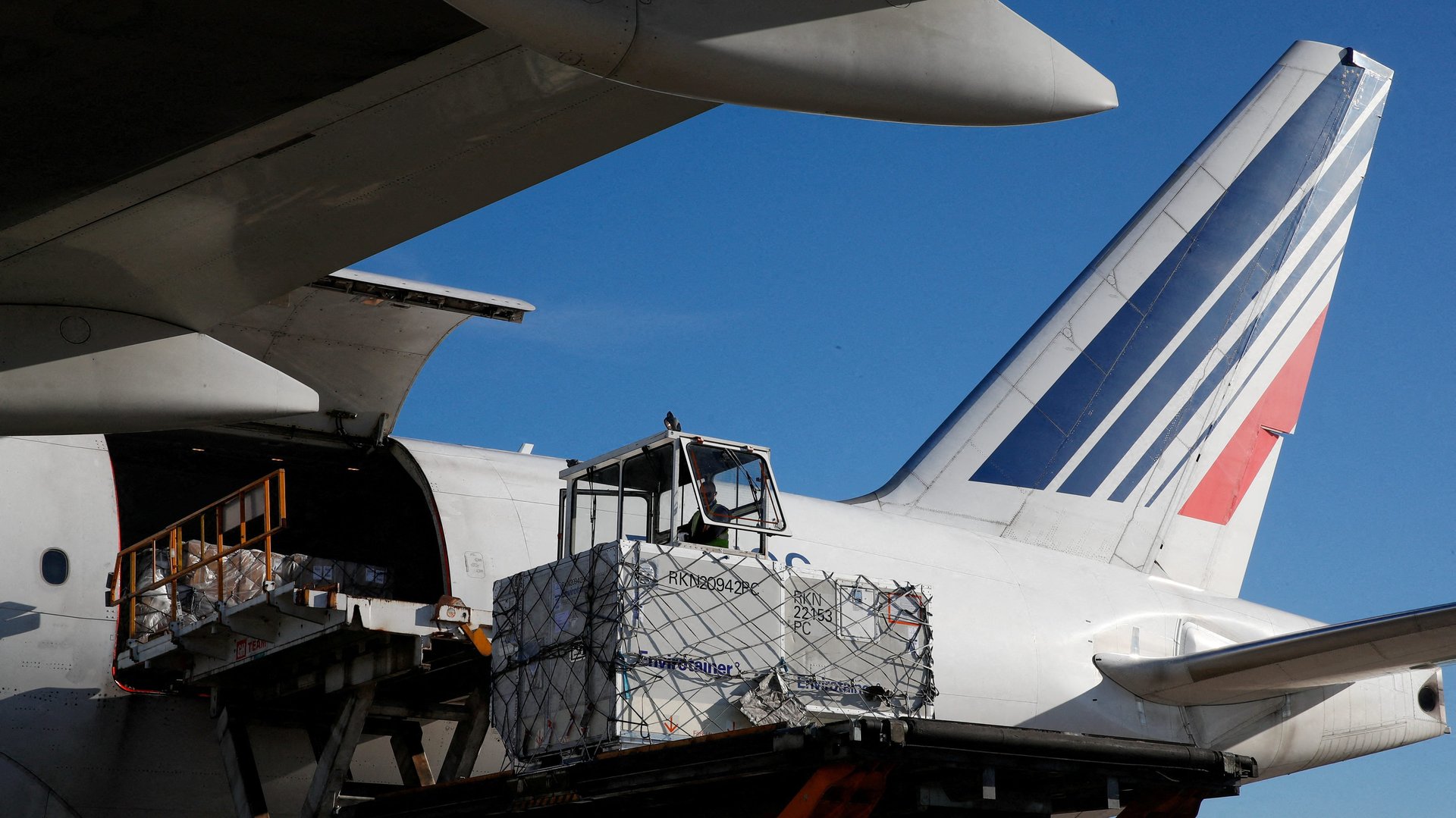The world’s biggest shipping lines are taking to the skies
The world’s three biggest shipping lines have sky-high ambitions to develop their own cargo airlines. Maersk, Mediterranean Shipping Company (MSC), and CMA CGM are buying planes, merging with air cargo vendors, and striking partnerships with existing airlines to expand their air cargo offerings.


The world’s three biggest shipping lines have sky-high ambitions to develop their own cargo airlines. Maersk, Mediterranean Shipping Company (MSC), and CMA CGM are buying planes, merging with air cargo vendors, and striking partnerships with existing airlines to expand their air cargo offerings.
After two years of soaring shipping profits, the firms know high ocean freight rates fueled by the pandemic won’t last forever. They’re now diversifying into other corners of the logistics business, from trucking to warehousing to supply chain software development before shipping prices collapse. As freight companies bet on a future of vertically-integrated cargo companies, all three shipping lines are racing to dominate supply chains from land, sea, and air.
Air France-KLM and CMA CGM partner on air cargo
CMA CGM partnered with Air France-KLM to quickly expand its air cargo capacity. Under the terms of the deal, announced May 18, the companies will share space onboard their freighter jets; CMA CGM can book space for its clients’ cargo on Air France-KLM planes and vice versa. CMA CGM also took a seat on Air France-KLM’s board and bought a 9% stake in the company, making CMA CGM one of Air France-KLM’s biggest shareholders.
CMA CGM launched its cargo airline in February 2021, using some of its pandemic profits to buy four Airbus cargo jets. The company has sought to expand its fleet by ordering four Boeing 777 freighters and another four Airbus A350 freighters—but these planes still haven’t been delivered. The tie-up with Air France-KLM instantly expands the companies’ combined fleet to include 10 cargo jets, with another dozen on order.
Maersk consolidates is its air cargo business
Maersk went on an air cargo shopping spree during the pandemic. The shipping line bought two new 777 freighters from Boeing and leased three 767 freighters from cargo airline Air Transport Services Group to expand its in-house fleet of 15 cargo jets. And in November, Maersk bought Senator International, a freight forwarder that helps its clients book space on cargo planes.
Maersk announced in April that it would consolidate these purchases into a subsidiary dubbed Maersk Air Cargo. Company executives say their goal is to use the in-house airline to transport a third of the air freight space it sells to its clients, and contract the rest out to other carriers and charter companies.
MSC courts ITA Airways as its first foray into air cargo
MSC hasn’t yet launched a cargo airline, but it wants to get into the business. The shipping line offered to buy a majority stake of troubled Italian state airline ITA Airways in January. The Italian government says it wants to sell the money-losing carrier by mid-June, and MSC has made an aggressive bid of more than $1.2 billion to take it over. But to cinch the deal, it will have to fend off rival bidders—including Air France-KLM.
Hapag-Lloyd ruled out a move into air cargo
Don’t expect Hapag-Lloyd, the fifth largest shipping line, to join the fray. CEO Rolf Habben Jansen ruled out the possibility on a February conference call with reporters, reasoning that his company doesn’t have the expertise to run an airline. He also said that shipping lines’ cargo airlines are too small to compete with companies like FedEx and UPS that own hundreds of aircraft.
“If you look at the size of the airfreight operations that some of the carriers are having with four or six or 10 freighters, that does not automatically make you a large global cargo carrier. And as such, we remain skeptical,” Habben Jansen said.